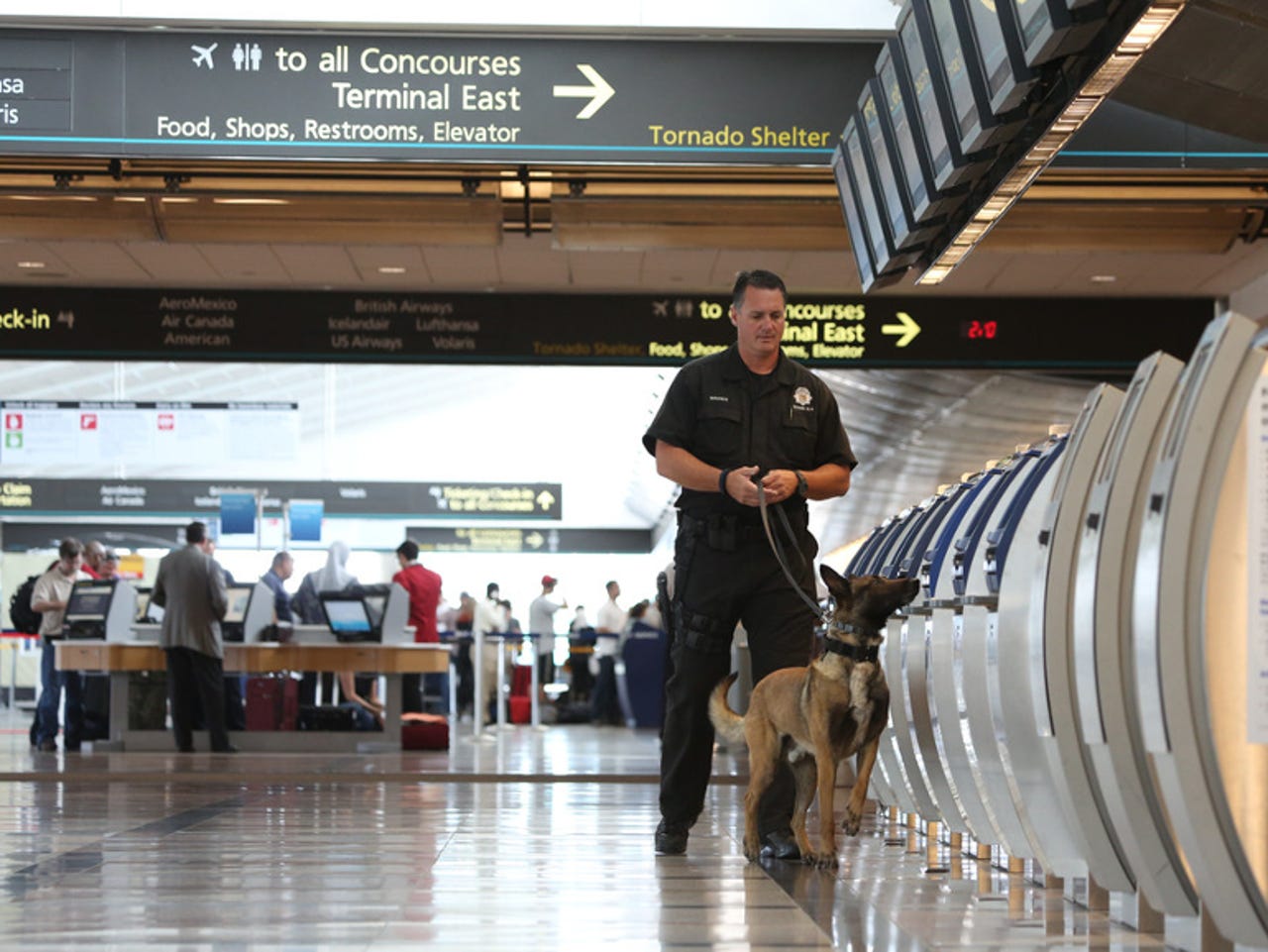End to airport security lines? New US trials set for AI-powered body scanners


Planned trials of the body scanners at sites, including possibly Denver International Airport, will run in addition to existing security arrangements.
Rapid body scanners developed by a tech firm that Bill Gates backed will soon be trialed at major public transport facilities in the US.
In November US-based Evolv Technologies is planning to kick off its first pilot using millimeter-wave imaging systems, according to documents filed with the US Federal Communications Commission.
The equipment operates in the 24GHz to 30GHz range. The planned trials will take place over two months at Union Station in Washington DC, Denver International Airport, and a station in the LA Metro rail network.
Evolv was spun out from Intellectual Ventures (IV) after receiving $11.8m funding from Gates and other investors in 2013 to commercialize the technology for use in places like airports and sports stadiums. The technology was developed in partnership with the IV-backed Metamaterials Commercializations Center.
Evolv's Evolv Sentry uses the same tech as current TSA-approved body scanners at US airports, so they're capable of detecting ceramic, metal and exploitive materials.
However, it claims to offer a number of advantages over currently used scanners, notably it does not conduct a virtual strip search.
The Evolv scanners are capable of scanning 800 people an hour, according to Evolv CEO Michael Ellenbogen. As noted by The Guardian, Evolv is using machine-learning to enhance its system's ability to detect weapons and explosives. The gateway system beams radiation at passing individuals and then analyzes unique scattering patterns reflected off their body to detect dangerous objects.
The speed of Evolv scanners is on par with existing TSA-approved scanners, but Evolv boasts that its scanners are less bulky and more mobile, allowing operators to move them to different locations to add an element of surprise.
People will be able to stroll through the scanners at normal walking speed with keys, cellphone, wallet and other personal items.
After scanning an individual for firearms or bombs, it sends the image to an officer's iPad. If there is a concealed firearm or bomb strapped to the person's waist, the image will mark where the prohibited item is located on the body.
The real-world pilot may yet reveal problems with Evolv's technology common to most security scanners, whether physical or digital, including false-positives, or wrongly flagging people as carrying a dangerous item.
Another risk is that an attacker reverse-engineers Evolv's algorithm and tricks the scanner into not recognizing a dangerous object.
READ MORE ON SECURITY
- Microsoft Office malware: Now more users get anti-hacker, macro-blocking features
- How to take down irritating drones without shooting them out of the sky
- Former NSA exec: We misjudged potential of insider threats like Snowden
- LibTIFF library security flaws lead to remote code execution
- Windows security: Google flags up new critical Adobe Flash Player flaw
- Dyn confirms Mirai botnet involved in distributed denial of service attack
- TechRepublic: Hackable heart implants: St. Jude comes under fire for security risks
- CNET: Search engine Shodan knows where your toaster lives